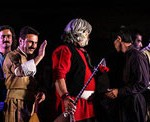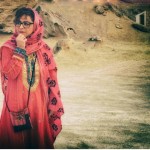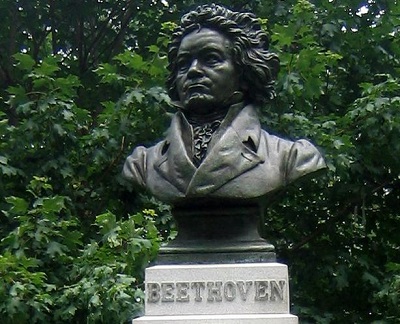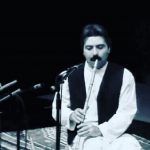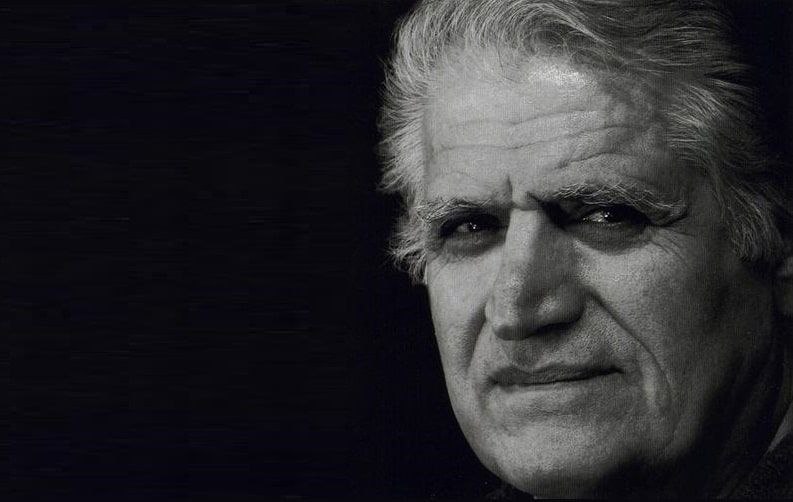
Composer and music teacher Ahmad Pejman (1935–2025) passed away on August 29 in Los Angeles, USA, after several weeks of illness. His most recent symphonic work performed in Iran was Land of the Brave Symphony (Sarzameen-e Delavaran), staged in 2017 with the Tehran Symphony Orchestra. According to the family’s decision, his body will be laid to rest in the United States.
Ahmad Pejman, born on July 9, 1935, in Lar, Fars Province, was an Iranian composer and musician. As a child and teenager, he became familiar with the rhythms and folk music of southern Iran. In high school, he studied violin with Heshmat Sanjari and music theory with Hossein Nassahi. Later, he joined the Saba Orchestra under Hossein Dehlavi and the Tehran Symphony Orchestra under the baton of Heshmat Sanjari and Heimo Teuber as a violinist.
In 1963, he completed his undergraduate studies in English language and literature at Daneshsara-ye ‘Aali (Teachers College). In 1964, on a scholarship, he traveled to Austria and studied composition at the Vienna Academy of Music under professors Thomas Christian David, Alfred Uhl, and Hans Jelinek.
In 1968, after completing his studies, he returned to Iran and began working as a composer for Rudaki Hall and as a professor at the University of Tehran. Works from this period include Jashn-e Dehqān Opera (The Farmer’s Festival, for the opening of Rudaki Hall), Delavar-e Sahand Opera (based on the life of Babak Khorramdin), and Samandar Opera—all staged before the 1979 Revolution.
In 1975, he went to Columbia University (New York) to pursue a doctorate in composition and studied electronic music with Vladimir Ussachevsky, Jack Beeson, and Bülent Arel. From the 1990s onward, he occasionally taught harmony, counterpoint, and composition at the Faculty of Music, University of Art, Tehran.
—
Selected Works
By the Brook and Rustic Song, and other early compositions prior to his academic studies
Concerto for Nine Instruments (his first work written and performed at the Vienna Academy of Music)
Rhapsody for Orchestra (1965)
Sonata for Viola and Piano (1966)
Persian Overture (1966)
Jashn-e Dehqān Opera (1967, for the opening of Rudaki Hall)
Delavar-e Sahand Opera (1968, based on the life of Babak Khorramdin)
Roshana’i Ballet (Light, 1969)
Samandar Opera (1970, his last opera before the Revolution)
Baba Barfi (children’s music, 1971)
Gol Oomad, Bahar Oomad (children’s music, 1971)
Nima Youshij Poetry Music (1972)
Impression Ballet (1973)
Ayyaran Ballet (folk ballet, 1974)
Symphonic Sketches (1975)
Epic Collection (works before the Revolution, 1976)
Seven Little Pieces (1978)
Hameh Shahr-e Iran (All of Iran, folk music, 1979)
Khorramshahr (1992)
Mokhtar Choral Work / Lone Rider of Love (1993, for a musical play)
Haft Khan-e Rostam (The Seven Labors of Rostam, 1996)
Sarāb (Mirage, 2001)
Khaterehā-ye Fardā (Memories of Tomorrow, 2002)
Nâgahan Rastakhiz (Sudden Resurrection, 2007)
Sāyehā-ye Khorshid (Shadows of the Sun, 2010)
Nowruz Symphony in five movements (2011)
Divertimento / House of Wisdom for string orchestra in four movements (2016)
Pars-Avā / Perso for piano in five movements (2016)
Sarzameen-e Delavaran Symphony (Land of the Brave, 2017)
Sohrab Sepehri Poetry Music (2017)
—
Film Music
A Documentary about Iran (Manouchehr Asgari-Nasab, 1971)
Delirān-e Tangestān (Homayoun Shahnawaz, 1971)
Samak the Ayyar (Mohammadreza Aslani, 1974)
Prince Ehtejab (Bahman Farmanara, 1974)
Tall Shadows of the Wind (Bahman Farmanara, 1979)
Made in Iran (Amir Naderi, 1980)
The Highway of Civilization (David Frost, 1980)
Hedid (Sirous Norsasteh, 1986)
The Actor (Mohsen Makhmalbaf, 1992)
Zinat (Ebrahim Mokhtari, 1993)
Kimia (Ahmadreza Darvish, 1994)
Blue Scarf (Rakhshan Banietemad, 1994)
A Documentary about Iran (Mostafa Razagh Karimi, 1996)
Lost Love (Saeed Asadi, 1997)
Temptation (Jamshid Akrami, 1998)
Smell of Camphor, Fragrance of Jasmine (Bahman Farmanara, 1999)
Baran (Majid Majidi, 2000)
Journey to Tomorrow (Mohammad Hossein Haghighi, 2001)
A House on the Water (Bahman Farmanara, 2001)
With the Wind in the Desert’s Solitude (Manouchehr Tayyab, 2001)
Astan-e Qods Razavi (Manouchehr Tayyab, 2003)
The Willow Tree (Majid Majidi, 2004)
A Little Kiss (Bahman Farmanara, 2004)
The Persian Gulf (Manouchehr Tayyab, 2005)
The Ancient Land (Kamal Tabrizi, 2008)
Alborz (Manouchehr Tayyab, 2011)
